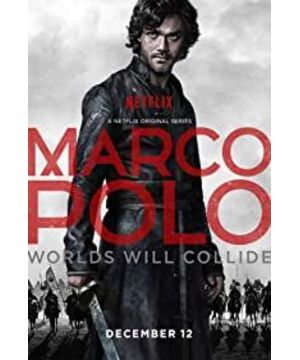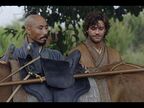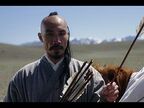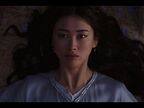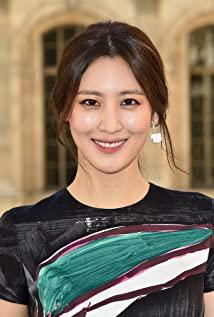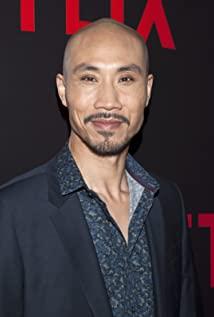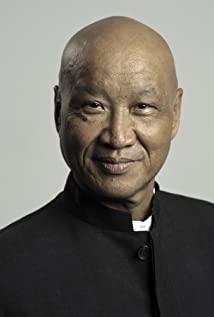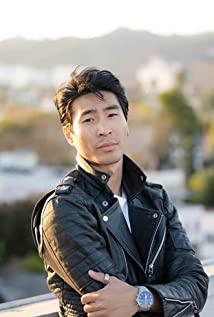The film begins with Marco and his father and uncle traveling eastward, unexpectedly encountering Mongolian soldiers and being taken to the palace of the capital. Father and uncle Cang explained why he came to Mongolia, but did not gain the trust of Khan Kublai. It was Marco’s articulation that attracted Kublai’s attention and made Kublai’s decision to leave Marco as a courtier, and made Marco a court celebrity who was envied by the prince’s real gold step by step. In the first four episodes, Marco saw Kublai Khan’s play alone, too similar to Calvino’s "The Invisible City"-an ambitious but philosophical monarch, a foreign traveller who came to an unfamiliar environment to observe everything curiously, One listens carefully, the other speaks seriously, outlines life with words, and communicates the possibilities with doubts. This kind of Kublai Khan with a trace of warmth should be unfamiliar to most Chinese who love history.
Originally, such a story of the downfall of the Southern Song Dynasty told from a Mongolian perspective is easy to cause discomfort. What's more, Southern Song Dynasty is the stubborn negative character in this film, and is the stumbling block that hinders Kublai’s grandfather’s lifelong dream. The many historical fallacies in the film are even more laughable: the Southern Song Dynasty court was not in Hangzhou but in Xiangyang; when Li Zongxun died, it was not his nephew Duzong who succeeded him but the son of Duzong; Jia Sidao certainly held the power of being Duzong. Known as the "shichen", but he dared to bomb the empress dowager to death with gunpowder. Not to mention that Jia Sidao has set up such wonderful works as the incarnation of a war madman in order to protect the Southern Song Dynasty regime and send his sister as a concubine to Mongolia to assassinate the Mongol Empress. So if you want to review the history of the Yuan Dynasty by watching this drama, you don't have to. Exaggerated imagination makes this drama an American fantasy drama about the East, like telling a medieval romance with Chinese elements.
However, to use Marco Polo as the protagonist of this drama, which is a dubious character, tacitly acquiesces in the rationality of imagination. After all, "Marco Polo's Travels" has long been found by historians to be full of exaggeration and time confusion.
The absence of Hangzhou, the capital of the Southern Song Dynasty, is really disappointing to me (Suzhou is mentioned more often than Hangzhou in the play!). How to present that "the most beautiful and luxurious city in the world" in the American TV series made me very curious. La vie quotidienne en Chine à la veiile de l'invasion mongole, 1250-1276, the French historian Jacques Gernet (Jacques Gernet) quoted a lot of " The description of Xingzai (Hangzhou) in Marco Polo's Travels is to demonstrate the astonishing prosperity of Hangzhou in the 13th century. But if you think about it carefully, you will find that there are some unreasonable things: Marco Polo is believed to have come to China between 1276 and 1292, when China was already under Mongolian rule (Hangzhou was peacefully occupied in 1276). ), the Hangzhou in his works is of course also Hangzhou in the early Mengyuan period. Xie and Nai clearly believed that Hangzhou in the early Mongol and Yuan Dynasties and Hangzhou in the Southern Song Dynasty had not changed much, so he cited this document. But shouldn't this be surprising? Regardless of the huge economic shock brought by Hangzhou's loss of its status as a national capital, the fact that Hangzhou has remained prosperous as in the past led Xie Henai to write in his introduction: "On the eve of the Mongol invasion, Chinese civilization was in its place in many ways. The peak of brilliance, and because of this invasion, it has undergone complete destruction in its history.” This argument seems a bit self-contradictory.
In fact, we have always imagined Mongolia and Yuan dynasty like this. "Chinese civilization destroyers" and "short-lived dynasties that failed to integrate into Chinese civilization" are our inherent impressions of the Mongols and the Yuan Dynasty. But is this really the case? Japanese historian Masaaki Sugiyama, in "The Challenge of Kublai: The Great Turn of Mongolian Empire and World History", tried to break this kind of thinking. Take Hangzhou as mentioned above. After removing political factors, it can still dominate the world with a population of one million and a prosperous economy. This fact in itself is worthy of rethinking what the Mongolian era was like.
The Mongolian court in the play seems to be very "international". Muslim bureaucrats, Mongolian generals, and Damascus engineers performed their duties during this period, and this is indeed a true portrayal of Kublai’s regime. Kublai was thirsty for talents and his use of talents was eclectic. He focuses on pragmatic bureaucrats who are capable and practical, especially those who are responsible for economic affairs. The main reason why Han literati were dissatisfied with the Mongolian regime was that almost no imperial examinations were organized in the Yuan Dynasty. However, from the perspective of the Mongolian regime’s policy of governing the country, it is indeed reasonable to do so: Confucian scholars who only understand the Confucian classics and are not well-versed in practical matters have no experience in the Mongolian regime. The law plays a role, and naturally there is no value in promotion. Ahmad, one of the important supporting roles in the play, is a real person in history. He is an Iranian Muslim. Supported by a powerful Muslim merchant group, he and Han Zhang Hui and others managed economic affairs in the Kublai Khan regime. Sanga, the tax collector who appeared in the play, also has its real testimony: under the Kublai Khan regime, tax collection is almost entirely appointed to Muslims, and most of them are carried out in the form of "contracting."
Sugiyama Masaaki pointed out that the greatest feature of Kublai’s regime is mercantilism and free economy. From the very beginning, Kublai and his strategists were determined to practice economically building the country, considering the creation of a worldwide scale of circulation and commerce. The annexation of the Southern Song Dynasty was also to achieve this goal: the most productive region in the world at that time would contribute irreplaceable power to the Mongol Empire to build a world-scale trading empire (p.204). Ahema created the special central government agency in charge of economy and finance, the "Guidelines for State Service", which later became the "Shangshu Province". This was a clear contrast to the Chinese dynasty, which was always "agricultural-oriented and business-oriented". Contrast (p.206-207). Sitting on China, which had the world's largest economic power and productivity at the time, the Kublai Khan regime adopted a free economic policy to reward large-scale commerce that transcended the framework of regions and "civilized circles". Regardless of origin and race, as long as you pay one-thirtieth of the commercial tax and customs duties, you can freely travel and do business in Mongolia, which spans the Eurasian continent (p.238). West Asia, the Middle East, and even Western Europe have all entered the Eurasian trade circle centered on the Great Yuan Khanate, and political barriers have disappeared in the increasingly frequent trade exchanges (p.243-244). For Chinese culture, what the Mongolian regime brings is not destruction but opportunity. Trade and cultural exchanges have not only greatly enhanced China's local economic strength, but also created a dazzling material culture. Blue and white porcelain, which gleams with Islamic aesthetic appeal and the unique color of "Return to Green", is one of the essence of cultural exchanges between the East and the West. "The emperor of China? The emperor of Mongolia? I will become the master of the world!" said Kublai Khan in the play. Perhaps this is not just a arrogant exaggeration, but what Kublai Khan actually put into practice in history.
Mercantilism, a free economy, a commercial network throughout Eurasia... To some extent, the Mongolian era may be the first "globalization" in history. Such a conclusion may be beyond the imagination of many of us.
"Reality always loses to imagination, Your Majesty." Marco Polo said.
But imagination is not necessarily higher than reality.
References
[Fa] Xie Henai. Daily life in China on the eve of the Mongolian Yuan invasion (illustrated) [M]. Beijing: Peking University Press, 2008.
[日] Masaaki Sugiyama. Kublai’s Challenge: The Mongol Empire and the Great Turn of World History[M]. Beijing: Social Science Archives Press, 2013.
View more about Marco Polo reviews


